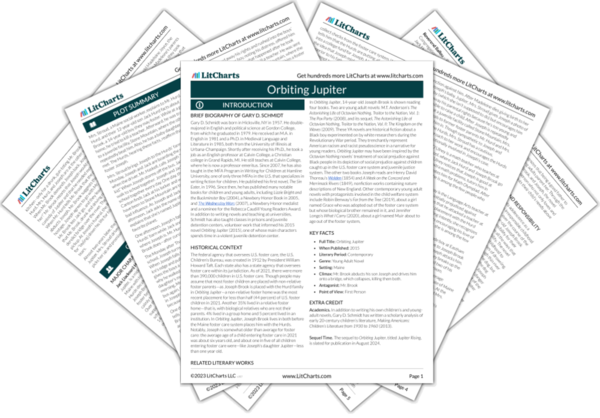Whereas Mr. D’Ulney and Coach Swieteck treated Joseph well right away, and Mr. Canton has continued to be prejudiced toward him, Mrs. Halloway—who was initially prejudiced against Joseph—sees him reading, revises her initial negative impression of him, and offers him extra mentorship. Mrs. Halloway’s about-face shows that people aren’t simply prejudiced or unprejudiced, full-stop: they can start prejudiced but change their minds.
Octavian Nothing is a book about a Black boy in Revolutionary Boston: when Joseph says he’s wondering “what it would have been like,” the context suggests that he’s wondering what it would have been like to be a Black person in America when Black people were enslaved and discriminated against. The novel never states Joseph’s race, so this moment may be implying that Joseph is Black, or it may simply be illustrating his intellectual curiosity and empathy.
